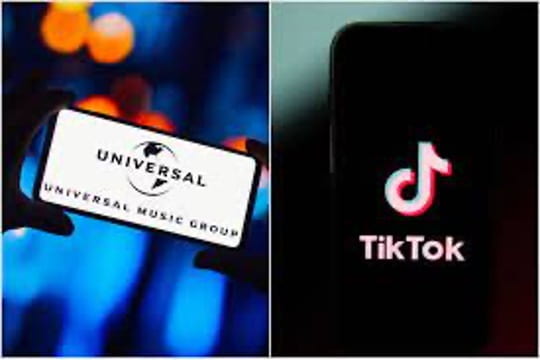By: Allison Nickerson
Social media and music operate in tandem; platforms now serve many purposes for artists including marketing and promoting their music. New artists are able to use social media platforms to market themselves more efficiently due to the affordable nature and global reach of social media. Platforms such as Instagram and YouTube allow newer and smaller artists to make a name for themselves because there is no longer a need for traditional campaigns that require long hours and large budgets. Now, through the accessibility of social media, small unknown artists can launch their career and become a global superstar. For example, Justin Bieber was discovered when he was twelve years old after a record industry executive saw a cover he posted on YouTube. More recently Lil Nas X released Old Town Road which went viral online, then charted on the pop, rap, and country charts. Although, it was ultimately removed from the Billboard country chart for not being country enough. The success of using social media to launch music careers and promote music is not likely to slow down as these platforms are becoming more popular and growing their capabilities over time.
An issue with having music online is the potential for copyright infringement by social media users creating content. Proper licensing is important because infringing use can result in copyright owners suing the creator of infringement. The fines associated with such a suit typically range from $750 to $30,000 per work infringed and can also require the defendant to pay court costs and attorneys’ fees. While infringement of social media content is common, the Digital Millennium Copyright Act of 1998 (“DMCA”) prevents copyright holders from going after the platforms when their users post infringing content. Copyright holders are unable to act against the platform because the DMCA created limitations on the liability of online providers for copyright infringement. Limited liability forces the copyright holders to go after the individual users rather than the social media platforms. However, most platforms have a copyright protection system that can suspend or terminate a user for multiple copyright violations, this system is designed to prevent infringing use on their sites. To further prevent infringing use, platforms provide music to users on social media by coming to agreements with record labels to license their music for a set fee. Allowing for licensing permits users non-infringing use of copyrighted music.
On January 31, 2024, the prior licensing deal between Universal Music Group (“UMG”) and TikTok expired. The two companies then began negotiating to try to come to a deal to continue to allow TikTok users to use music owned by UMG. After unsuccessful negotiations, UMG decided to pull their catalog due to not reaching agreement that both the platform and label consider fair. UMG then released an open letter expressing their frustration with the platform “noting the issues [including lack of] protection against AI-generated recordings, online safety issues for users and [requesting] higher compensation for its artists and songwriters”. Compensation is a major issue because TikTok is proposing paying UMG artists at a fraction of the rate they receive from other social platforms pay. UMG is able to negotiate for better rates because TikTok accounts for only about 1% of the music labels total revenue. However, UMG pulling their artists of the platform is a big blow to them because the artists signed with the label are some of the biggest on the planet. The inability to reach an agreement has silenced many videos on the platform with music from artists such as Taylor Swift, Justin Bieber, The Weeknd, and Arianna Grande. UMG explains that TikTok is trying to “build a music-based business, without paying fair value for the music”. Another problem that UMG cited as part of the reason for disagreement was TikTok’s allowance of AI-generated content. The record label claims that the contractual demands by TikTok would allow their artists to be replaced by AI. The impact on TikTok is yet to be seen to the full extent but it is predicted that users will move to other platforms such as Reels and YouTube Shorts.
Expanding use of music online requires greater protections for artists, and licensing agreements allow for this protection. However, without this agreement it will greatly limit what can be done on social media platforms. Historically, TikTok has served as an extremely effective marketing tool for UMG to promote their artists, and UMG’s music creates engagement for the platform. UMG and TikTok’s working relationship is mutually beneficial, but without a new licensing agreement this relationship will not last, and users will turn to different platforms.
Student Bio: Allison Nickerson is a second-year law student at Suffolk University Law School. She is a staff writer for the Journal of High Technology Law. She graduated from North Carolina State University with a Bachelor of Arts in Political Science.
Disclaimer: The views expressed in this blog are the views of the author alone and do not represent the views of JHTL or Suffolk University Law School.

